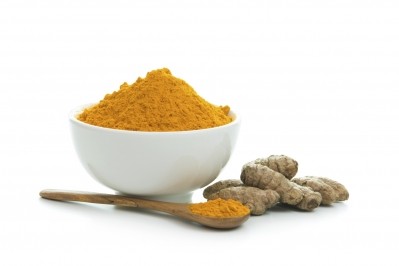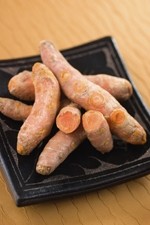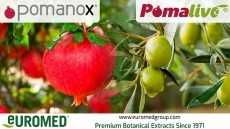Curcumin-soy formulation may boost absorption 60-fold: Indena study

The curcumin-soy lecithin combination, commercialized by Indena as Meriva, was also found to increase absorption of demethoxycurcumin and bisdemethoxycurcumin, compounds present in natural curcumin, up to 60-fold, according to findings published in the Journal of Natural Products.
“Curcumin has been a sort of ‘forbidden fruit’ for biomedical research, since its poor oral bioavailability has substantially hampered clinical development, despite the very promising indications of the preclinical research,” wrote the researchers, led by John Cuomo from USANA Health Sciences in Salt Lake City.
“We have demonstrated that formulation with phospholipids improves the human absorption of curcumin, without, however, leading to pharmacologically active plasma concentrations and with only phase-2 metabolites being detectable,” they added.
Significant advance
Giovanni Appendino, professor of organic chemistry at the University of Eastern Piedmont, Indena Scientific Advisor, and co-author of the study said the new study “represents one of the more significant advances in turmeric research”.
“For the first time, a dramatic formulation-dependent increase in the bioavailability of curcuminoids in humans has been demonstrated, highlighting that curcuminoids have different absorption properties, and that the presence of lipids, as in Meriva and in the traditional culinary use of turmeric, critically magnifies them,” said Prof Appendino.
“These results will open up new areas of clinical research on curcumin, rationalizing the clinical efficacy of Meriva at dosages much lower than those of curcumin, and successfully addressing the issue of mega-doses that has plagued the clinical research on curcumin.”
Study details
Researchers from USANA Health Sciences, Indena, and the University of Eastern Piedmont recruited nine people with an average age of 35 to participate in the randomized, double-blind, crossover human study. The volunteers received five (low-dose - 209 mg total curcuminoids) or nine (high-dose - 376 mg total curcuminoids) hard-shell capsules of either the soybean-based phospholipid-curcumin formulation (Meriva) or five capsules of a non-formulated curcuminoid mixture containing 1799 mg of curcuminoids.
“Total curcuminoid absorption was about 29-fold higher for Meriva than for its corresponding unformulated curcuminoid mixture, but only phase-2 metabolites could be detected, and plasma concentrations were still significantly lower than those required for the inhibition of most anti-inflammatory targets of curcumin,” report the researchers.
“Remarkably, phospholipid formulation increased the absorption of demethoxylated curcuminoids much more than that of curcumin, with significant differences in plasma curcuminoid profile between Meriva and its corresponding unformulated curcuminoid mixture.
“Thus, the major plasma curcuminoid after administration of Meriva was not curcumin, but demethoxycurcumin, a more potent analogue in many in vitro anti-inflammatory assays,” they added.
The increase in blood levels of the demethoxylated curcuminoids was “unexpected” said the researchers, and the reason for this is unknown.
The researchers said that a possible explanation could be microbial metabolism of curcumin in the gut in a similar process as the one that produces enterolactone and enterodiol from flax lignans.
“The improved absorption, and possibly also a better plasma curcuminoid profile, might underlie the clinical efficacy of Meriva at doses significantly lower than unformulated curcuminoid mixtures,” they concluded.
Source: Journal of Natural Products
Published online ahead of print, doi: 10.1021/np1007262
“Comparative Absorption of a Standardized Curcuminoid Mixture and Its Lecithin Formulation”
Authors: J. Cuomo, G. Appendino, A.S. Dern, et al.













